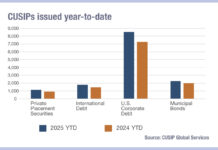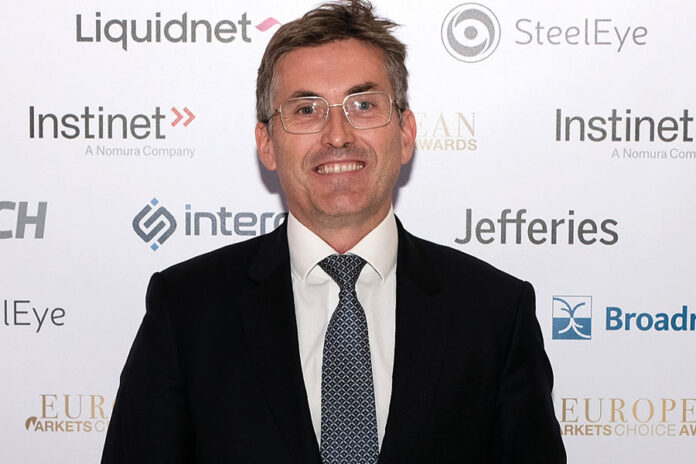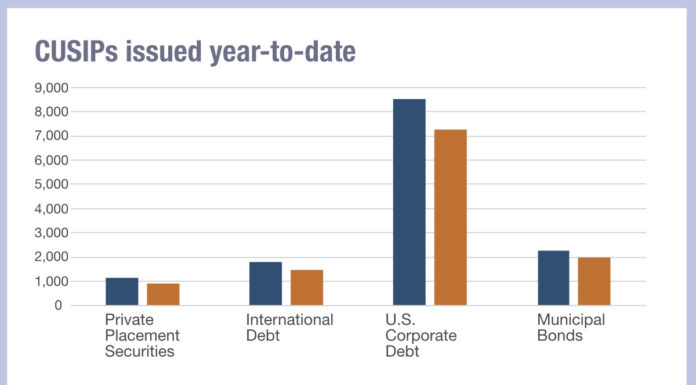Jefferies stands out for commitment to clients and hands-on approach
Buy-side traders have chosen Jefferies as the “Best Sell-side Fixed Income Trading Desk” in this year’s European Markets Choice Awards. In recent years, Jefferies has deliberately expanded its fixed income business in Europe with several notable hires and the investment is paying off. We spoke with Fred Orlan, Jefferies’ global head of Fixed Income; Fred Jallot, head of EMEA Fixed Income; and Emmanuel Parrenin, head of business & resource management for EMEA Fixed Income, to discuss how they built the business.
How would you describe the trading environment?
Fred Orlan: Challenging. Amid a tightening cycle, liquidity is being drained out of the system and investors have been relatively cautious. It’s hard for investment banks to run large balance sheets in this environment because it isn’t making a lot of money for you. You’re really making your money trading with and helping clients, which requires good ideas and good execution.
Fred Jallot: Clients need access to, and transparency around, liquidity. They also need to know that their information is safe with us when they are testing liquidity. Our collaborative approach allows us to be active across markets and regions, supporting clients across algos, ETF trading, and voice trading and accessing liquidity wherever it might be. We find that this partnership-based approach has enabled us to provide consistent service to our clients across the cycle.
What has been your approach to meeting client demand in this challenging environment?
FO: Focusing on our clients and empowering our people. It sounds simple, but it takes work to execute, and you’ve got to really be on top of it.
We take the view that the client franchise is always first and foremost. Our mission is to serve clients and our client relationships, together with our people, are the main assets of the firm. We stay close to our clients, understanding their investment objectives as well as their strengths and constraints. We constantly exchange ideas and work in partnership to achieve their goals in ways that benefit both sides. This means coordinating our services across products and regions and providing multiple execution options to deliver exactly what our clients require. We do that well because we have a very flat organisation focused specifically on the investment banking business.
FJ: A very important part of our success is the diversity of our team. We purposefully challenge ourselves to get out of our comfort zones and avoid confirmation bias, and hiring is an important part of this. As a recent example, we hired experts in artificial intelligence from outside of the financial industry and they have brought us a very different way of thinking. Another beauty of diverse teams is that people on our team have complementary strengths. Sometimes we are operating in a more data-driven market and sometimes it’s more fundamentally driven. Our diversity allows us to be present in all types of markets.
Emmanuel Parrenin: We have also developed a range of tools to help us understand our clients and help the decision making of our sales team, traders, and analysts. These new tools and technologies will give us better insights into market activity and improve efficiency for our people so they can focus on delivering for our clients.
FO: Our CEO, Rich Handler, has always emphasised that we care a lot about our people at Jefferies. We know them all. I interview everyone who comes into the business. For team members joining in Europe, Fred Jallot is deeply involved. We know their story. People, not machines, are our producers, and people are inherently complex, so it’s important to be really hands-on. This culture starts at the top of our firm. You’ve got to roll your sleeves up and dig in with all your people. That personal approach has been especially important as our fixed income team really expanded over the last four years in Europe.
Buy-side traders describe you as supporting liquidity in tough parts of the market, how do you do that?
FJ: When there’s an SVB situation, or Credit Suisse situation, and our clients need help, we jump in. With SVB, the whole team came together. On Jefferies’ banking side, we have a great client franchise in technology, and many companies we work with were going to be left without liquidity. Over the weekend when SVB was collapsing, our sales and trading team managed to source around US$15 billion of buying interest on the deposits. We put together a legal structure to transfer deposits both in Europe and in the US to trade these claims. Our tech clients knew we would be there for them on Monday morning even if governments were not. It was amazing. The whole firm came together in just a few hours.
FO: We might not provide as much overall liquidity as the top two or three banks at a given point in time, but we make sure we do it sustainably. On top of that, when there is a difficult situation for our clients, we see it as our duty to be there. That might create six months of challenges on the back of it, but dealing with that is our job.
EP: We don’t look to enter a market just to boost market share ranking or because our competitors are there. We understand what our clients need and then assess whether we can meet that demand in a profitable way. Our clients know that when we develop a new business, we do it sustainably and are committed for the longer term, and I think they appreciate that.
What is your strategy for the next year?
FO: We are going through a pivotal time. After years of non-existent inflation and near-zero interest rates, the economy is now adjusting to a different environment. This, added to the effects of technological advances and geopolitical tensions, creates a highly uncertain environment. So being able to deal with uncertainty is essential to our clients and our continued success. We must be ready to help, whatever 2024 holds for us. This means being agile and building a business model that is less dependent on the market conditions. As we have shown with the Credit Suisse and SVB situations, our teams are incredibly responsive and ready to deal with any situation. If we need to analyse a vast quantity of data, we are ready for that. If we need to make one important phone call, we have the client relationships. We are confident that we have the people and the structure to meet whatever challenges that are ahead for our clients and for us.
EP: While we have grown our balance sheet in Europe over the past 4 years, our business model does not rely on an extension of the balance sheet to generate revenues. We do, however, deploy our financial resources as necessary to support clients. This approach requires coordination between different markets and regions, but ultimately provides sustainable liquidity to our clients and better aligns our interest with theirs. We win when our clients win!
FJ: The constant feedback from our clients is that they would like to see us offering portfolio trading and blocks, so this is our immediate focus in Europe. Portfolio trading is a growing part of the market. We are already a leading provider in the US and are expanding our offering in Europe. This requires a distinctive approach to reflect different market dynamics and data sets and, as such, a different technological build than in the US. We are working on it as a matter of priority. There’s also a need for discreet block trading. Each time a client picks up the phone to discuss a block, they’re taking a risk and we want to make sure that when they call Jefferies, they’re getting that security. We have built our trading and distribution capabilities; we have the right ethos and are ready to go!
©Markets Media Europe 2023
©Markets Media Europe 2025


























